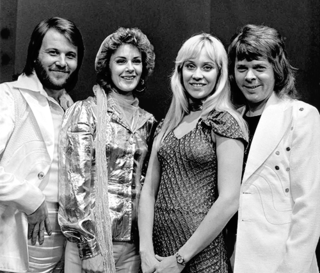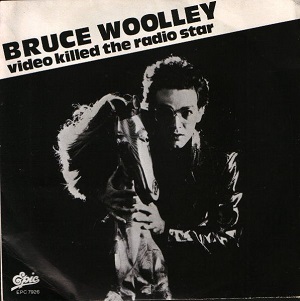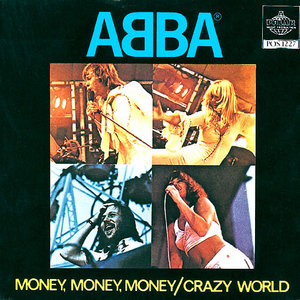Related Research Articles

ABBA are a Swedish pop supergroup formed in Stockholm in 1972 by Agnetha Fältskog, Björn Ulvaeus, Benny Andersson, and Anni-Frid Lyngstad. The group's name is an acronym of the first letters of their first names arranged as a palindrome. They are one of the most popular and successful musical groups of all time, and are one of the best-selling music acts in the history of popular music.

"Rapper's Delight" is a 1979 hip hop track that serves as the debut single of American hip-hip trio the Sugarhill Gang, produced by Sylvia Robinson. Although it was shortly preceded by the Fatback Band's "King Tim III ", "Rapper's Delight" is credited for introducing hip hop music to a wide audience, reaching the top 40 in the United States, as well as the top three in the United Kingdom and number one in Canada. It was a prototype for various types of rap music. The track interpolates Chic's "Good Times", resulting in Chic's Nile Rodgers and Bernard Edwards threatening to sue Sugar Hill Records for copyright infringement; a settlement was reached that gave the two songwriting credits. The track was recorded in a single take. There are five mixes of the song.

"Video Killed the Radio Star" is a song written by Trevor Horn, Geoff Downes and Bruce Woolley in 1979. It was recorded concurrently by Bruce Woolley and the Camera Club for their album English Garden and by British new wave/synth-pop group the Buggles, which consisted of Horn and Downes.

"Funkytown" is a song by American disco-funk group Lipps Inc., written and produced by Steven Greenberg and released by Casablanca Records in March 1980 as the second single from the group's 1979 debut studio album Mouth to Mouth.
52nd Street is the sixth studio album by American singer-songwriter Billy Joel, released on October 11, 1978, by Columbia Records. Presenting itself as the follow-up to his breakthrough studio album, The Stranger, Joel tried to give the new album a fresh sound, hiring various jazz musicians to differentiate it from his previous studio albums.

"I Will Survive" is a song by American singer Gloria Gaynor, released in October 1978 by Polydor Records as the second single from her sixth album, Love Tracks (1978). It was written by Freddie Perren and Dino Fekaris. The song's lyrics describe the narrator's discovery of personal strength following an initially devastating breakup. The song is also frequently recalled as a symbol of female empowerment, as well as a disco staple.

"1979" is a song by American alternative rock band the Smashing Pumpkins. It was released in 1996 as the second single from their third studio album, Mellon Collie and the Infinite Sadness. "1979" was written by frontman Billy Corgan, and features loops and samples uncharacteristic of previous Smashing Pumpkins songs. The song gives something of a foreshadow of the synth-pop sound the band would embrace more openly on Adore and its tracks "Ava Adore" and "Perfect". The song was written as a nostalgic coming-of-age story by Corgan. In the year 1979, Corgan was twelve, and this is what he considered his transition into adolescence.

"Don't Stop 'Til You Get Enough" is a single written, recorded and sung by American singer Michael Jackson. Released under Epic Records on July 10, 1979, the song is the first track on Jackson's fifth studio album Off the Wall (1979). Additionally, it was Michael’s first solo recording in which he had control of the creative direction.
"Rivers of Babylon" is a Rastafari song written and recorded by Brent Dowe and Trevor McNaughton of the Jamaican reggae group The Melodians in 1970. The lyrics are adapted from the texts of Psalms 19 and 137 in the Hebrew Bible. The Melodians' original version of the song appeared on the soundtrack album for the 1972 movie The Harder They Come, which made it internationally known.

"Heart of Glass" is a song by the American new wave band Blondie, written by singer Debbie Harry and guitarist Chris Stein. It was featured on the band's third studio album, Parallel Lines (1978), and was released as the album's third single in January 1979 and reached number one on the charts in several countries, including the United States and the United Kingdom.

"Tragedy" is a song released by the Bee Gees, written by Barry, Robin & Maurice Gibb, included on their 1979 album Spirits Having Flown. The single reached number one in the UK in February 1979 and repeated the feat the following month on the US Billboard Hot 100. In 1998, it was covered by British pop group Steps, whose version also reached number one in the UK.

"Ring My Bell" is a 1979 disco song written by Frederick Knight. The song was originally written for eleven-year-old Stacy Lattisaw as a teenybopper song about children talking on the telephone. When Lattisaw signed with a different label, American singer and musician Anita Ward was asked to sing it instead, and it became her only major hit.

"Money, Money, Money" is a song recorded by Swedish pop group ABBA, written by Benny Andersson and Björn Ulvaeus with Anni-Frid Lyngstad singing lead vocals. It was released on 1 November 1976, as the second single from their fourth album, Arrival (1976). The B-side, "Crazy World", was recorded in 1974 during the sessions for the album ABBA. The song is sung from the viewpoint of a woman who, despite hard work, can barely keep her finances in surplus, and therefore desires a well-off man.

"Pop Muzik" is a 1979 song by M, a project by English musician Robin Scott, from the debut album New York • London • Paris • Munich. The single, first released in the UK in early 1979, was bolstered by a music video that was well received by critics. The clip featured Scott as a DJ singing into a microphone from behind an exaggerated turntable setup, at times flanked by two female models who sang and danced in a robotic manner. The video also featured Brigit Novik, Scott's wife at the time, who provided the backup vocals for the track.

"Hot Stuff" is a song by American singer Donna Summer from her seventh studio album Bad Girls (1979), produced by English producer Pete Bellotte and Italian producer Giorgio Moroder and released as the lead single from Bad Girls in 1979 through Casablanca Records. Up to that point, Summer had mainly been associated with disco songs but this song also showed a significant rock direction, including a guitar solo by ex-Doobie Brother and Steely Dan guitarist Jeff "Skunk" Baxter. It is the second of four songs by Summer to reach number one on the Billboard Hot 100.

Grease: The Original Soundtrack from the Motion Picture is the original motion picture soundtrack for the 1978 film Grease. It was originally released by RSO Records and subsequently re-issued by Polydor Records between 1984 and 1991. It has sold over 30 million copies worldwide, making it one of the best-selling albums of all time, also ranking amongst the biggest selling soundtrack albums of all time. The song "You're the One That I Want" was a U.S. and UK No. 1 for stars John Travolta and Olivia Newton-John.

"Je l'aime à mourir" is a French-language song written by Francis Cabrel. It is taken from his second album Les Chemins de traverse released in 1979 that sold over 600,000 copies in France. The single "Je l'aime à mourir" became a hit single for Francis Cabrel in France, Quebec (Canada), Europe and internationally. Spanish singer Manzanita interpreted the song to Spanish flamenco audience making the hit song popular again for the second time. It is considered Cabrel's most definitive hit alongside "Je t'aimais, je t'aime, je t'aimerai".

The English and Foreign Languages University known as EFLU is a central university for English and foreign languages located in Hyderabad, India. It is the only such university dedicated to languages in South Asia.
Crying and Laughing is a 1900 French short silent film by Georges Méliès. It was sold by Méliès's Star Film Company and is numbered 306 in its catalogues.
References
- ↑ Archives on "InfoDisc" site Archived 2014-03-30 at the Wayback Machine